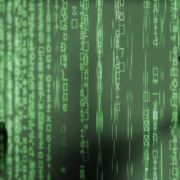In a digital world where we increasingly need security to protect our personal data, passwords have long been seen as the first line of defense. But their reliability is now being questioned, and biometric sensors could soon replace them.
Biometrics recognition is the use of a person’s physical or behavioral characteristics to identify them. Biometric sensors can measure these characteristics, such as fingerprints, iris, voice, or face. Unlike passwords, biometrics are unique to each individual, making it a more secure method of authentication.
The limitations of passwords
Passwords have many flaws. They are often too simple, and users tend to use the same password for multiple accounts. Cybercriminals can easily guess or obtain them using phishing or hacking techniques. Finally, passwords are not suitable for all use cases, such as emergency situations or people who have difficulty remembering their password.
That is why companies are seeking safer alternatives. Fingerprint sensors are becoming increasingly common in smartphones, laptops, and even credit cards. They allow for quick and easy authentication without the need to remember a password. They also provide increased security because it is very difficult, if not impossible, to falsify a person’s biometric characteristics.
The challenges of biometrics
However, biometrics is not a perfect solution. It can be expensive, especially for small businesses or individuals. It can also pose privacy concerns because it involves the collection and storage of sensitive biometric data. Finally, it is not foolproof: biometric sensors can be fooled by sophisticated techniques such as fake fingerprints or deepfakes.
Despite these challenges, biometrics has the potential to replace passwords in the near future. It offers increased security and a better user experience by eliminating the need to remember complex passwords. Biometric sensors are becoming more reliable and affordable, and are expected to become the norm in many fields.
In conclusion, passwords have long been the standard for digital authentication, but their reliability is now being questioned. Biometric sensors offer a safer and more convenient alternative, although challenges remain. Ultimately, it is up to users and companies to decide whether they are ready to adopt biometrics as a method of authentication.



